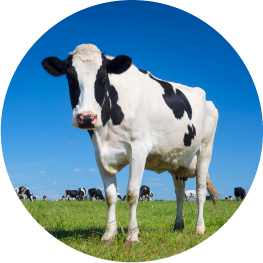
Introducing Solids
From around 4-6 months of age, solids should be introduced to babies. Initially solids are just about teaching your baby a new skill of eating and letting them explore new flavours, smells and textures. From around 6 months, an infant’s iron stores start to deplete so this is a great time to start to introduce iron-rich foods.
Vitamin C helps the body to better absorb iron (particularly iron coming from non-meat sources) so trying to pair up your iron rich food (such as beef, lamb or silverbeet, with a vitamin C rich food such as capsicum, broccoli or sweet potato).
What Should Food Texture Be like?
As babies develop their interest and skill around feeding, it is important to progress with textures and finger foods to further allow your infant to develop their eating skills and managing different foods in their mouths.


As Baby Grows From Infant To Toddler
From 8 months, as an infant’s feeding skills progress, food often becomes a more significant contributor to total calorie intake and so it is important to ensure that you continue to provide them with a variety of different flavours but also a range of different foods from each food group including lots of different colours of fruit and vegetables. Ensure your child is having protein at least once/day.
By 12 months of age, children should be eating with the rest of the family and probably don’t need to have special food made for them.
What About Dairy Foods?
Dairy foods such as milk, cheese and yogurt contain vitamin A, vitamin B12, riboflavin, calcium, carbohydrate, magnesium, phosphorus, protein, potassium, and zinc. There are all important nutrients for your baby.
Your baby can have small amounts of milk from about 8 months old. You can serve it with cereal or make a custard with it, but is should not be used to replace breast milk or formula. Yoghurt and cheese can also be introduced around this time. Your should avoid low fat dairy products. Babies need the nutrients and fats in full fat dairy products.


Vitamins & Minerals, what are they good for?
Vitamins
Vitamin A – helps to maintain vision and immune function
Thiamin (B1) – important for carbohydrate metabolism and nerve function
Riboflavin (B2) – important for normal vision
Niacin (Vitamin B3) – is essential for the body’s digestion of carbohydrates
Vitamin B6 – Is needed for brain development and immune function
Folate (Vitamin B9) – is needed to form red blood cells which transport oxygen around out bodies
Vitamin B12 – is important to help maintain a healthy nervous system
Vitamin C – helps to keep all of the cells in our body healthy. It is necessary for the maintenance of connective tissues which support and structure the tissues and organs of the body
Vitamin E – helps to maintain healthy skin, eyes and supports our immune system
Minerals
Magnesium – helps with metablism
Phosphorus – helps to build strong teeth and bones
Potassium – important for heart health and maintaining fluid balance in our bodies
Selenium – plays an important role in our immune system

 Products
Products

 You have no items
You have no items